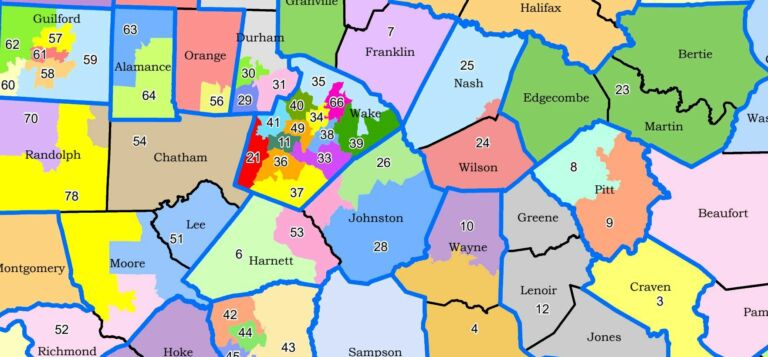As the North Carolina General Assembly began the long session last week, observers noted that something was missing. The temporary rules adopted by the House did not have a provision for providing 48 hours’ notice before a vote to override Governor Cooper’s vetoes. That provision had been in previous House rules.
The change is important because we can expect many close veto override votes during this session. North Carolina’s “red wave” election last November left Republicans with a 71-49 majority in the House, one vote shy of the 60% supermajority Republicans need to override a veto.
House Speaker Tim Moore sounded bullish about his chances of overcoming Gov. Cooper’s vetoes:
I would call it a ‘governing super-majority.’ We do have a number of Democrats who have indicated they’re going to be willing vote with us.
As part of that “governing super-majority,” Republicans named several Democrats committee co-chairs.
However, the rule change suggests that Moore does not believe that super-majority will hold once Cooper pressures those Democrats. A “governing super-majority” would not need to change rules in the hope of slipping in a vote while some Democrats are not in the assembly building.
Little Practical Difference from Veto Vote Rule Change
The Senate’s permanent rules have a provision providing 24-notice before a veto override vote:
The Chair of the Committee on Rules and Operations of the Senate or the Chair’s designee shall give the Senate Minority Leader at least 24 hours’ notice that a vetoed bill may be considered by the Senate.
Emphasis should be placed on “may” in that sentence.
The practical application of 48-hour notice in previous House rules meant that the House was under continual notice that there “may” be a veto override vote during upcoming sessions. Days and weeks would go by with notices that a vetoed bill may be considered without the bill being taken up.
Then there was the veto override on September 11, 2019.
Republican leaders noticed that many Democrats were missing from the House chamber during one of the many days under a veto override notice. (Perhaps while the Democrats were “downstairs right now trying to redraw partisan-heavy maps.”) They called a snap vote on a budget veto override. The override passed the House but later failed in the Senate.
In short, there is little functional difference between the current House rules providing for veto override votes without prior notice and previous rules that resulted in the House functioning under a near-continuous notice of possible veto override votes.
An ideal rule would provide for a veto override vote within a regular timeframe (perhaps 8-10 business days) after the governor announces the veto. But asking parliamentarians not to play parliamentary games might be too big an ask.
The House will adopt permanent rules in February.


